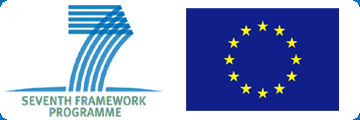New Actors in International Development

- © Sven Grimm
Rapidly growing developing countries such as China, India and Brazil do not only gain economic influence but also emerge as new actors on the international development landscape. These "new actors" follow a distinct agenda which often conflicts with OECD/DAC agreements. Thus, their engagement in least developed countries does not fulfil DAC criteria for development assistant. Instead, new actors use specific funding instruments, trade relations as well as investment in infrastructure which are often paid "in kind" with exploitation concessions for specific resources. In these engagements the boundaries between profit seeking private investment and public policy, as well as the effectiveness of the instruments for the development of the recipient country are unclear. Research regarding rationales, interest groups and policy processes of these new actors are vital in creating new tools and scenarios for European policy makers. Only with such insights can new areas of convergence be found and strategic partnerships for effective development co-operation be formed. Open questions, crucial for the EU's policy response, remain:
- Is rich country policy on poverty reduction driven by genuine concern or by self interest?
- What is the rationale of new actors in aid provision, the choice of partners and the level of aid?
- Where are challenges in partners' positions for European external relations or where might points of convergence emerge?
Sven Grimm on new actors in international development
“There is increased evidence that developing countries will have more power in global governance, be it via increasing foreign direct investment, their weight in the international financial system or their increasing importance in regional and global security as well as in international organizations by virtue of sheer size and international connectedness...What effects will emerging actors such as China, India and Brazil have on European thinking about aid instruments, modalities and organization of the European aid system?”
Involved consortium partners
Project partner co-ordinating this research area: German Development Institute / Deutsches Institut für Entwicklungspolitik (DIE), Sven Grimm
Project partners involved in this research area: DIE, FRIDE, IDS, ODI
Sven Grimm, Research Fellow at the Department for Bi- and Multilateral Development Cooperation at DIE
Thomas Fues, Research Fellow within the Global Governance School Team at DIE
Erik Lundsgaarde, Research Fellow at the Department for Bi- and Multilateral Development Cooperation at DIE
Christine Hackenesch, Research Fellow at the European Policy for Global Development Programme at DIE
Sarah Lea John de Sousa, Researcher at the Peace and Security Programme at FRIDE
Stefan Meyer, Senior Researcher at the Humanitarian Action and Development Programme at FRIDE
John Humphrey, Team Leader and Research Fellow at the Globalisation Team at IDS
Marta Foresti, Research Fellow at the Poverty and Public Policy Group at ODI
Leni Wild, Research Ofiicer at the Poverty and Governance Group at ODI
Related work at the consortium partners' institutes and other EADI members
Department for Bi- and Multilateral Development Cooperation, German Development Institute / Deutsches Institut fuer Entwicklungspolitik (DIE)
Aid / Governance and Politics, Overseas Development Institute (ODI)
Aid / China / Politics and Power, Institute of Development Studies (IDS)
Peace, Security and Human Rights, Fundación para las Relaciones Internacionales y el Diálogo Exterior (FRIDE)
European Programme, Society for International Development (SID)
EADI Portal helps you to access quality research output and a wealth of knowledge on international development issues generated by EADI's network.
